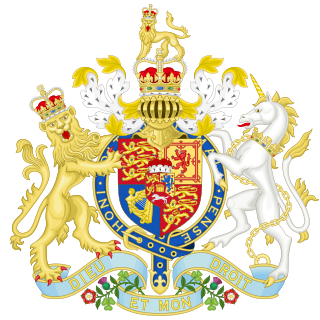
The Municipal Corporations Act 1835, sometimes known as the Municipal Reform Act, was an Act of the Parliament of the United Kingdom that reformed local government in the incorporated boroughs of England and Wales. The legislation was part of the reform programme of the Whigs and followed the Reform Act 1832, which had abolished most of the rotten boroughs for parliamentary purposes.

The Offences against the Person Act 1861 is an Act of the Parliament of the United Kingdom of Great Britain and Ireland. It consolidated provisions related to offences against the person from a number of earlier statutes into a single Act. For the most part these provisions were, according to the draftsman of the Act, incorporated with little or no variation in their phraseology. It is one of a group of Acts sometimes referred to as the Criminal Law Consolidation Acts 1861. It was passed with the object of simplifying the law. It is essentially a revised version of an earlier Consolidation Act, the Offences Against the Person Act 1828, incorporating subsequent statutes.

The Suppression of Religious Houses Act 1539, sometimes referred to as the Second Act of Dissolution or as the Act for the Dissolution of the Greater Monasteries, was an Act of the Parliament of England.

The Act of Uniformity 1551, sometimes referred to as the Act of Uniformity 1552, or the Uniformity Act 1551 was an Act of the Parliament of England.

The Act of Uniformity 1548, the Act of Uniformity 1549 or the Uniformity Act 1548 was an Act of the Parliament of England, passed on 21 January 1549.

The Piracy Act 1717, sometimes called the Transportation Act 1717, was an Act of the Parliament of Great Britain that established a regulated, bonded system to transport criminals to colonies in North America for indentured service, as a punishment for those convicted or attainted in Great Britain, excluding Scotland. The Act established a seven-year transportation sentence as a punishment for people convicted of lesser felonies, and a fourteen-year sentence for more serious crimes, in lieu of capital punishment. Completion of the sentence had the effect of a pardon; the punishment for returning before completion was death. It is commonly accepted that 30,000 convicts may have been transported to the British American colonies, with some estimates going as high as 50,000.

The Bridges Act 1530, sometimes called the Statute of Bridges, was an Act of the Parliament of England.

The Habeas Corpus Act 1640 was an Act of the Parliament of England.

The Judgment of Death Act 1823 was an Act of the Parliament of the United Kingdom. Passed at a time when there were over 200 offences in English law which carried a mandatory sentence of death, it gave judges the discretion to pass a lesser sentence for the first time. It did not apply to treason or murder. The Act required judges to enter a sentence of death on the court record, but then allowed them to commute the sentence to imprisonment.

The Profane Oaths Act 1745 was an Act of the Parliament of Great Britain passed in 1746, in effect from 1 June 1746, and formally repealed in 1967. It established a system of fines payable for "profane cursing and swearing".

The Libel Act 1843, commonly known as Lord Campbell's Libel Act, was an Act of the Parliament of the United Kingdom. It enacted several important codifications of and modifications to the common law tort of libel.

The Liberties Act 1850 was an Act of the Parliament of the United Kingdom that provided a mechanism to enable the various liberties or independent jurisdictions in England and Wales to be merged into the geographical counties in which they lay.

The Punishment of Offences Act 1837 was an Act of the Parliament of the United Kingdom of Great Britain and Ireland. It abolished the death penalty for a number of statutory offences and replaced it with transportation for life.

The Unlawful Drilling Act 1819, also known as the Training Prevention Act is an Act of the Parliament of the United Kingdom. It was one of the Six Acts passed after the Peterloo massacre.

The Forgery Act 1837 was an Act of the Parliament of the United Kingdom. It was one of the Acts for the Mitigation of the Criminal Law passed during the session 7 Will. 4 & 1 Vict.

The Forgery Act 1830 was an Act of the Parliament of the United Kingdom. It consolidated into one Act all legislation imposing the death penalty for forgery. Two years later the death penalty was abolished for most of these offences, and for the remaining offences in 1837.

The Justices of the Peace Act 1547 was an Act of the Parliament of England.

The Great Seal Act 1688 is an Act of the Parliament of England. As of 2020 section 1 of the Act is still in force in Great Britain.

The Aliens Restriction (Amendment) Act 1919 is an Act of the Parliament of the United Kingdom originally aimed at continuing and extending the provisions of the Aliens Restriction Act 1914, and the British Nationality and Status of Aliens Act 1914 and to deal with former enemy aliens after the end of the First World War.

The Metropolitan Police (Receiver) Act 1861 or the Metropolitan Police Receiver's Act 1861, sometimes called the Metropolitan Police District Receiver Act, was an Act of the Parliament of the United Kingdom. This Act has, in addition to its other short titles, been given the short title the Metropolitan Police Act 1861, but that short title has also been given to the Act 24 & 25 Vict. c. 51. The Metropolitan Police (Receiver) Act 1861 is one of the Metropolitan Police Acts 1829 to 1895.










